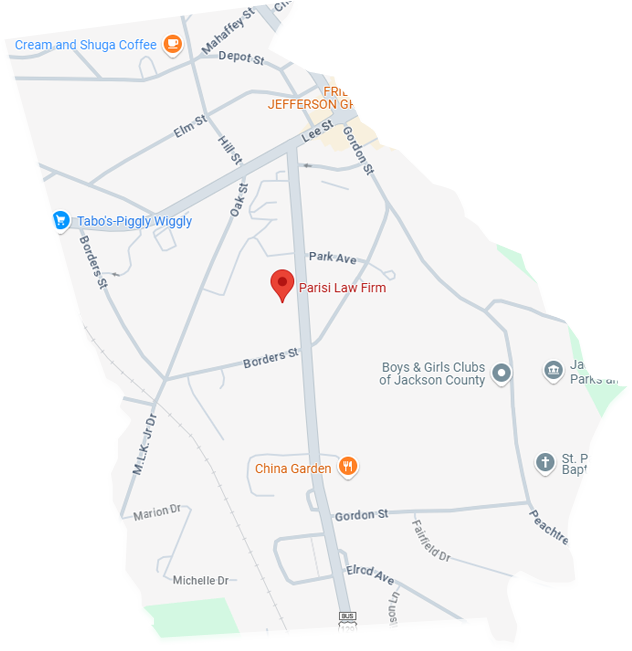Truck accidents can be life-altering events, leaving victims with not only physical and emotional scars but also significant financial burdens. In Georgia, understanding how to navigate medical expenses following such an incident is crucial for recovery and peace of mind. This comprehensive guide will walk you through the essential steps, considerations, and resources available to help you manage your healthcare costs effectively after a truck accident.
When you’re involved in a truck accident, your primary focus should be on your health and recovery. However, the mounting medical bills can quickly become overwhelming, adding stress to an already challenging situation. Whether you’re dealing with emergency room visits, ongoing treatments, or long-term rehabilitation, knowing how to handle these expenses is vital for your overall well-being and financial stability.
In this blog post, we’ll explore the intricacies of medical expenses following a truck accident in Georgia. From understanding your rights and insurance options to seeking legal assistance and maximizing your compensation, we’ll provide you with the knowledge and tools necessary to navigate this complex landscape. By the end of this guide, you’ll be better equipped to make informed decisions about your medical care and financial future.
Understanding Your Rights After a Truck Accident
When you’re involved in a truck accident in Georgia, it’s crucial to understand your rights regarding medical expenses. Georgia law provides certain protections and options for accident victims, ensuring that you have access to necessary medical care without bearing the entire financial burden.
First and foremost, you have the right to seek immediate medical attention following an accident, regardless of your ability to pay at that moment. Emergency medical services and hospitals are required to provide treatment for life-threatening conditions, ensuring that your immediate health needs are addressed.
Additionally, Georgia follows a “fault” system for auto accidents, meaning that the party responsible for the accident is also responsible for covering the resulting damages, including medical expenses. This is where having a thorough understanding of your rights becomes crucial in securing proper compensation for your medical care.
It’s important to note that Georgia has a statute of limitations for personal injury claims, which is typically two years from the date of the accident. This means you have a limited time frame to file a claim for your medical expenses and other damages, making it essential to act promptly in seeking legal advice and initiating the claims process.
Immediate Steps to Take After a Truck Accident
In the aftermath of a truck accident, taking the right steps can significantly impact your ability to recover medical expenses. While your health should be your top priority, there are several actions you can take to protect your rights and strengthen your claim for medical compensation.
The first and most crucial step is to seek immediate medical attention for your injuries. Some injuries, particularly those involving soft tissue or internal organs, may not be immediately apparent but can have serious long-term consequences if left untreated.
While at the scene of the accident, if you’re able, collect as much evidence as possible. This includes taking photos of the accident scene, gathering contact information from witnesses, and obtaining a copy of the police report. This documentation can be invaluable when filing insurance claims or pursuing legal action to cover your medical expenses.
It’s also crucial to notify your insurance company about the accident as soon as possible. Many insurance policies have strict deadlines for reporting accidents, and failing to do so could jeopardize your coverage. However, be cautious about providing detailed statements or accepting settlement offers without first consulting with a legal professional.
Navigating Insurance Coverage for Medical Expenses
Understanding your insurance coverage is a critical aspect of managing medical expenses after a truck accident in Georgia. The type and extent of your insurance coverage can significantly impact how your medical bills are handled and what out-of-pocket expenses you may incur.
In Georgia, drivers are required to carry a minimum amount of liability insurance, which can cover medical expenses for others involved in an accident caused by the insured driver. However, this coverage may not be sufficient to cover all medical costs, especially in severe truck accidents where injuries can be extensive and long-lasting.
If you have personal injury protection (PIP) coverage, also known as medical payments coverage, this can help cover your immediate medical expenses regardless of who was at fault for the accident. PIP coverage can be particularly helpful in covering initial medical costs while fault is being determined or a claim is being processed.
It’s important to review your insurance policy carefully and understand what types of medical expenses are covered, any deductibles or co-pays you’re responsible for, and any limits on coverage. If you find that your insurance coverage is insufficient to cover all your medical expenses, you may need to explore additional options for compensation.
Dealing with Medical Providers and Bills
Managing medical bills after a truck accident can be a daunting task, especially when you’re focusing on your recovery. However, understanding how to navigate this aspect of your medical care can help alleviate some of the financial stress associated with your treatment.
One of the first steps in dealing with medical providers is to inform them that your injuries are the result of a truck accident. Many healthcare providers have experience working with accident claims and may be willing to work with you on payment arrangements while your claim is being processed.
Keep detailed records of all medical treatments, prescriptions, and related expenses. This documentation will be crucial when seeking compensation for your medical costs. Don’t hesitate to ask for itemized bills from your healthcare providers, as these can provide a clearer picture of the services rendered and their associated costs.
If you’re struggling to pay your medical bills while waiting for your claim to be settled, consider discussing your situation with the hospital’s billing department. Some healthcare providers offer financial assistance programs or may be willing to negotiate lower rates or payment plans for patients facing financial hardship due to accident-related injuries.
Understanding Comparative Fault in Georgia
Georgia follows a modified comparative negligence rule, which can significantly impact your ability to recover compensation for medical expenses after a truck accident. Understanding this concept is crucial when pursuing a claim for your medical costs and other damages.
Under Georgia’s comparative fault system, you can still recover damages even if you were partially at fault for the accident, as long as you were less than 50% responsible. However, your compensation will be reduced by your percentage of fault. For example, if you’re found to be 20% at fault for the accident, your total compensation would be reduced by 20%.
This system underscores the importance of thoroughly documenting the accident and your injuries. The more evidence you have to support your claim and demonstrate the other party’s fault, the better your chances of maximizing your compensation for medical expenses.
It’s also worth noting that truck accident cases can be particularly complex when it comes to determining fault. Multiple parties may share responsibility, including the truck driver, the trucking company, or even third-party maintenance providers. This complexity further emphasizes the value of skilled legal representation in navigating your claim.
Long-Term Considerations for Medical Expenses
While immediate medical care is crucial after a truck accident, it’s equally important to consider the potential long-term medical expenses you may face. Severe injuries from truck accidents can often require ongoing treatment, rehabilitation, or even lifelong care.
When pursuing compensation for your medical expenses, it’s crucial to account for these future costs. This may include expenses for follow-up surgeries, physical therapy, medication, medical equipment, and any necessary modifications to your home or vehicle to accommodate your injuries.
Estimating these future costs often requires input from medical professionals and life care planning experts. They can provide detailed projections of your future medical needs based on the nature and severity of your injuries. This information is invaluable in ensuring that any settlement or court award adequately covers your long-term medical expenses.
It’s also important to consider the potential impact of your injuries on your ability to work and earn income. If your injuries result in permanent disability or reduced earning capacity, this should be factored into your claim for compensation.
Obtaining Fair Compensation
Navigating the aftermath of a truck accident can be overwhelming, especially when it comes to managing medical expenses and seeking compensation. Understanding your insurance coverage and dealing effectively with medical providers are essential steps in this process, which Parisi Law Firm can guide you through.
Moreover, considering both immediate and long-term medical needs will ensure that you are adequately compensated for the full scope of your injuries. It’s wise to consult with legal and medical professionals who can help you build a strong case and secure the financial support necessary for your recovery. Remember, you do not have to face this journey alone; a personal injury lawyer can help to guide you every step of the way.






